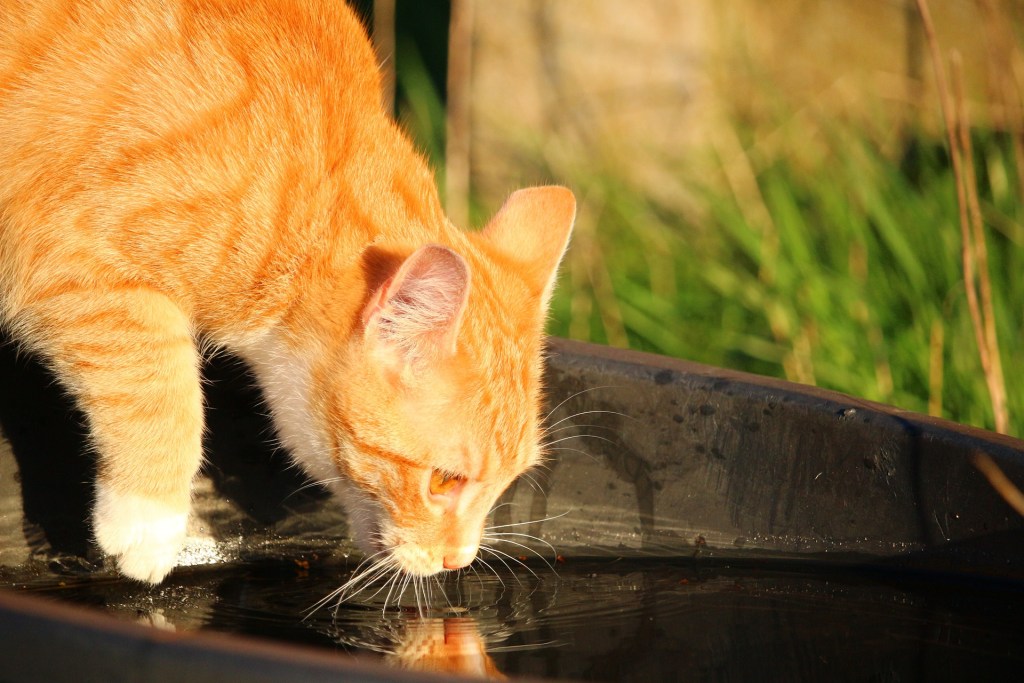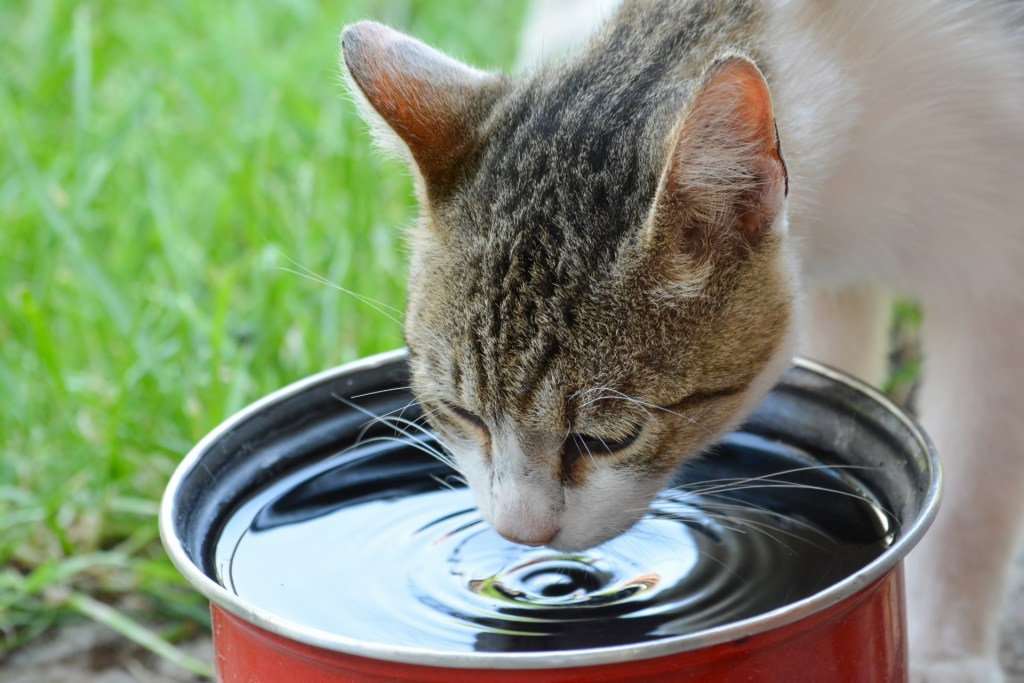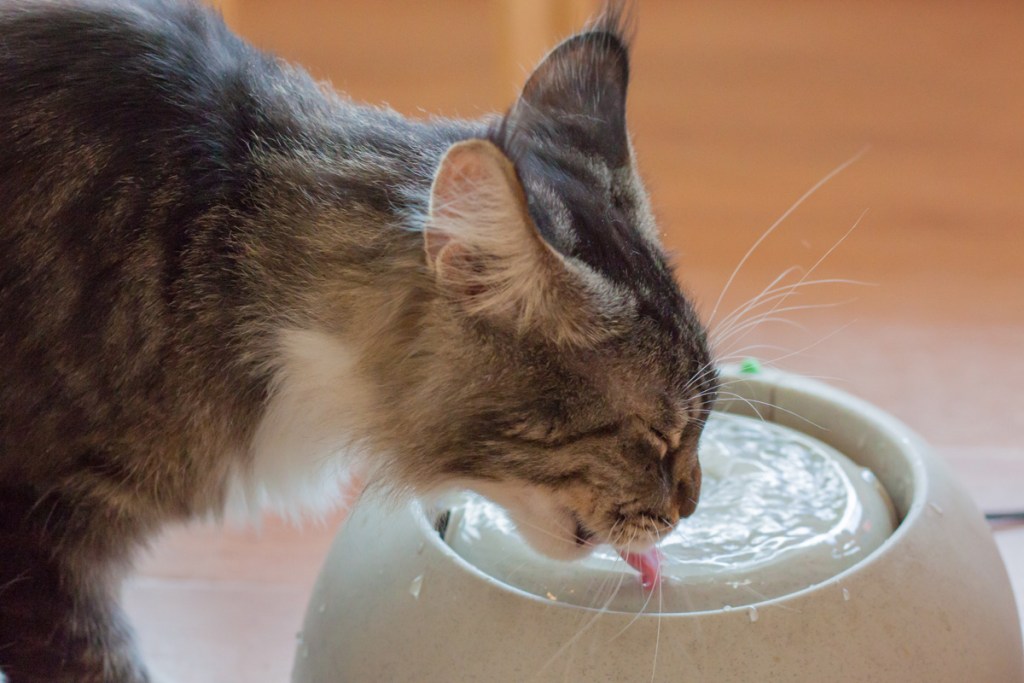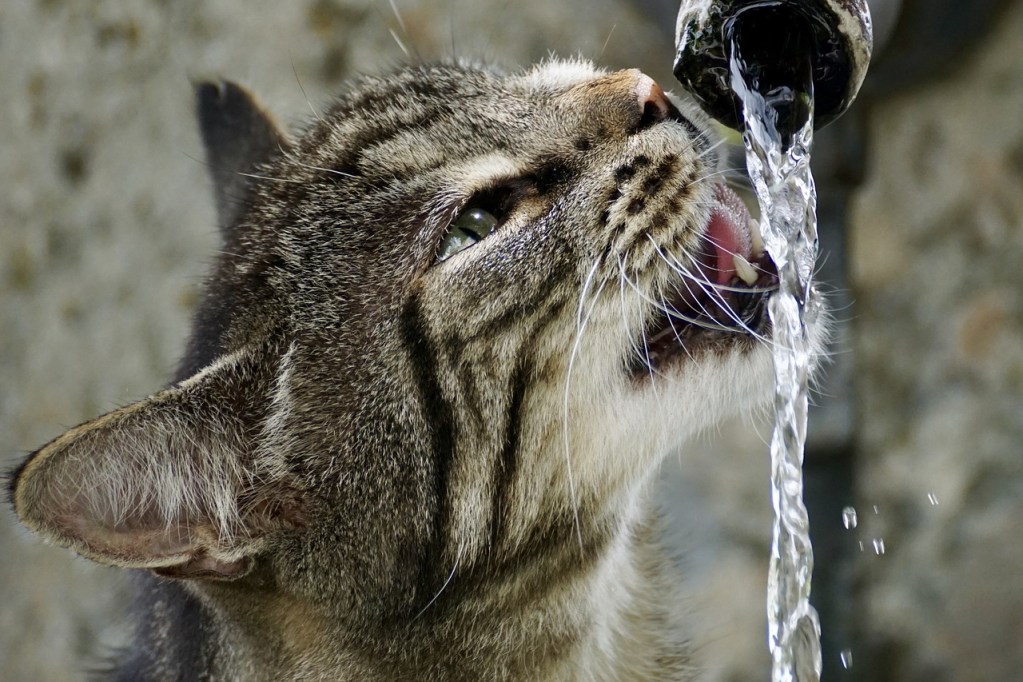It’s natural for your cat to drink frequently throughout the day, but if your cat is continuously draining his water dish, there might be something amiss. If you’re wondering why your cat is drinking so much water, there are several potential explanations, and it’s important to determine the cause. Thirst is one explanation. Excessive water intake can also be a sign of potential health problems, and spotting a problem early on means you’ll be able to get your cat the vet care he needs.

Normal drinking habits for cats
While several factors influence how much water a cat drinks, there is no exact figure for how much water a cat should drink. Your cat’s age and size will affect his drinking habits, and because wet food is mostly water, a cat who eats wet food will tend to drink a little less than a cat who eats dry food only.
Your cat’s lifestyle will also affect how much water he needs. If you have an active cat who spends the day outside in warm temperatures, he’ll drink more than a sedentary indoor cat who lives in a cooler environment.
With time, you’ll get to know what’s normal for your cat and how often you have to refill his water bowl. If you notice a sudden and significant change, then your cat might be experiencing a problem.

Behavioral reasons for drinking more than usual
Some cats may start drinking in excess because of anxiety or stress. Drinking water can become a sort of reassurance for your cat that eventually turns into a habit that he’s doing to soothe himself, rather than a physical need.
You may be able to identify stress-based drinking by looking for other behavioral changes in your cat. These may include:
- Changes in eating habits.
- Sleeping more or sleeping in different locations.
- Anti-social behavior.
- Hyper-clingy behavior.
It’s important to determine what’s causing the stress. Look for big life changes like the addition of a new baby to the household or a recent move. Addressing these changes and giving your cat some time may help reduce his stress.
Many of the signs of stress in cats are also symptoms of serious health issues. You might decide to monitor your cat for a little bit if there’s a known stressor in his life, but it’s important to consult your vet if you think there could be a health problem.

Physical causes for excessive thirst
Unfortunately, many physical issues can lead your cat to drink unusual amounts of water.
- Diabetes. Increased thirst is a common symptom of diabetes. It can usually be managed with insulin injections.
- Hyperthyroidism. Cats with hyperthyroidism may experience an increased appetite and thirst, vomiting and diarrhea, and weight loss. It typically affects older cats ages 12 and up, and several treatments are available.
- Kidney disease. While kidney disease is more common in older cats, younger cats can be affected, too. If your cat’s kidneys start to fail, your cat will urinate more, then drink more to make up for that lost fluid. While kidney disease is progressive, you can manage it in several ways, including medication and diet.

Your cat’s drinking habits can provide important insight into his overall health. While there are situations that can cause your cat to drink more, it’s also important to carefully monitor his drinking habits for signs of potential health issues. If you’re uncertain if your cat’s drinking habits are normal, it’s best to make an appointment with your vet. Your vet can perform an examination and may decide to do some diagnostic testing to rule out any serious health issues that might be behind your cat’s thirst. Many of these potential health issues are manageable and treatable, but it’s always best to identify them early on to help keep your cat as healthy as possible.


